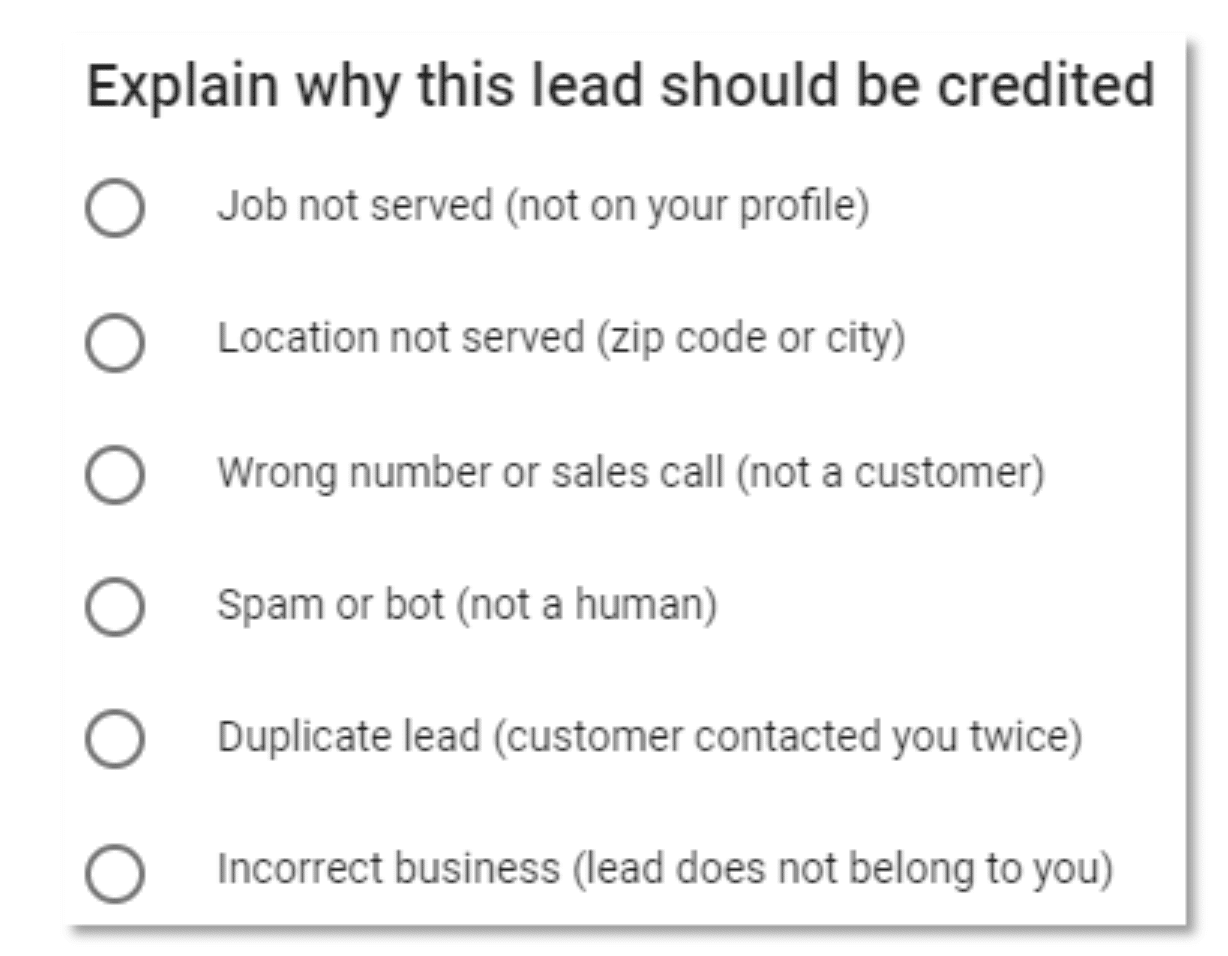
What Google’s New Automated Lead Credit System Means for Your Local Services Ads
By Socius Staff
July 31, 2024
NOTE TO SOCIUS CLIENTS: the update detailed below is not relevant to healthcare advertisers. Lead credits have never been an option for healthcare advertisers due to the sensitive nature of medical privacy, and laws protecting such information.
It’s not spring anymore, but Google’s doing a little housekeeping. The push for increased automation on its digital advertising platforms continues, this time with a major change to Google Local Services Ads (LSA).
As of July 1st, manual lead disputing is on its way out. Taking its place is a new automated system. Let’s go over the what, the when, and everything you will need to know.
WHEN
First off, let’s clarify the when. As of this publication, this functionality is not universal yet. Beyond the July 1st launch and the guidance that this will be rolled out to all accounts eventually, Google has not provided official timelines – That said, July 24th seemed to be a significant date for beginning the rollout and it is expected to last 2-3 weeks before all advertisers are converted.
WHAT
Google is ending the manual lead dispute option. This was a feature that had been accessible through the LSA dashboard. An advertiser could log in, look at the details of a particular lead, determine that it was in some way illegitimate, and then request a credit from Google. If approved, that credit would be applied towards the next billing cycle.
An advertiser could do this with as many leads as they wanted, with the dispute then being sent to a Google team for review. The decision on whether to grant the credit was entirely up to Google, and its decisions were final, but this option had been very useful to those businesses who utilize the LSA platform actively. In fact, for some accounts with large budgets, this amounted to hundreds of dollars a month back in their pockets!
Google’s list of options for requesting a credit under the manual dispute system
With the manual dispute feature disappearing, Google is replacing it with a new automated system. This system will leverage its machine learning tools to review leads and automatically determine if a credit should be given. Per their announcement, the benefit of this new system comes down to two things:
- It will save business owners time, since they won’t have to review all LSA leads themselves, or employ another person or agency to do so. So, if you’re running a small business and don’t have the time, staff, or resources to devote to LSA lead disputes, Google suggests this could be a net positive.
- Similarly, Google says this will be a plus for businesses that take a hands-off approach to their LSA account. If you have an LSA account, are satisfied with the performance, and have never disputed a lead because you were happy with the results – or if you didn’t even know the dispute feature was available – you should start to see some credits roll in as Google takes over this process.
Just because Google puts its best foot forward, however, doesn’t mean we should ignore the potential negatives. A significant downside in this new system is that credits will no longer be given for invalid leads related to job type or location. And as you can see in the image above, those were the first two options!
To elaborate on what this means, let’s say your business installs or repairs gutters. For LSA, this job type falls under the category of Roofing, which includes other job types such as roof repair, roof installation, roof inspection, skylights, and more.
Under the manual dispute system, if a potential customer saw your LSA and called you to discuss, say, a new roof installation, you could simply request the credit. You would select Job Not Served and tell Google, “No, I only offer gutter services.” Google would then evaluate and either approve or deny. This process worked similarly if a lead came from a zip code or city outside the area where you told Google you want your LSA to appear.
For some LSA users who have been active in monitoring their leads, this was a fantastic option. But with the new system it will soon be gone – indeed, may already be gone from your account by the time you’re reading this.
EVERYTHING YOU NEED TO KNOW
With disputes for invalid leads going away, you may be asking, “Well, what counts as a valid lead?”
Here’s what Google says will result in a lead being charged:
- You get a text message or email from a prospective customer (This is currently only in US and Canada and requires message leads to be enabled)
- You receive a phone call and a voicemail from the customer
- You answer a phone call and speak with the customer
- You miss a call and there is no voicemail, but you reach back out to the customer via text, email, or phone call where you speak with the customer directly or leave a voicemail
- You get a booking request from a customer (this feature is only for the US and Canada)
So if you can’t dispute, what can you do? Well, the new system may be automated, but that doesn’t mean you should sit back and let it do whatever it wants!
In the same area of the LSA dashboard where you could dispute leads, you will now see a Lead Feedback Survey. Google is urging advertisers— both businesses and agencies— to use this for every LSA lead. According to Google, the new system will be adaptive based on feedback.
We mentioned above that Google is using machine learning tools to carry out this automation. Their engineers and programmers have spent more than a year training this system, but even though it’s launching, that doesn’t mean it’s done learning. You can now take part in the ongoing training.
This means you can not only provide negative feedback and tell Google a lead is bad – and why – but also you can tell Google whether a lead is good. Your feedback will, in effect, tailor the algorithm to your LSA account’s needs.
Let’s return to the roofing example: if you receive a lead asking for roof installation but only offer gutter services, you can use the Lead Feedback Survey to tell Google it was an invalid lead. While you won’t get a credit, your feedback will help the system improve over time. Google says this will result in better lead quality going forward, as the system will evaluate future incoming leads and recognize whether a lead is of good quality. If, based on your feedback of prior leads, it determines the lead is invalid, you will then automatically receive a credit.
Since this feature is still being rolled out, we can’t say yet how this will work in practice, but it is important to stress that how strongly Google wants your feedback. Only time will tell whether this ends up being a net benefit to advertisers using the LSA platform, but if Google has designed this new system as well as they claim, then advertisers, especially those who utilize the feedback surveys, should see improvement in lead quality in the long run.
Not a Socius client yet and want help navigating these changes? Let’s chat.



